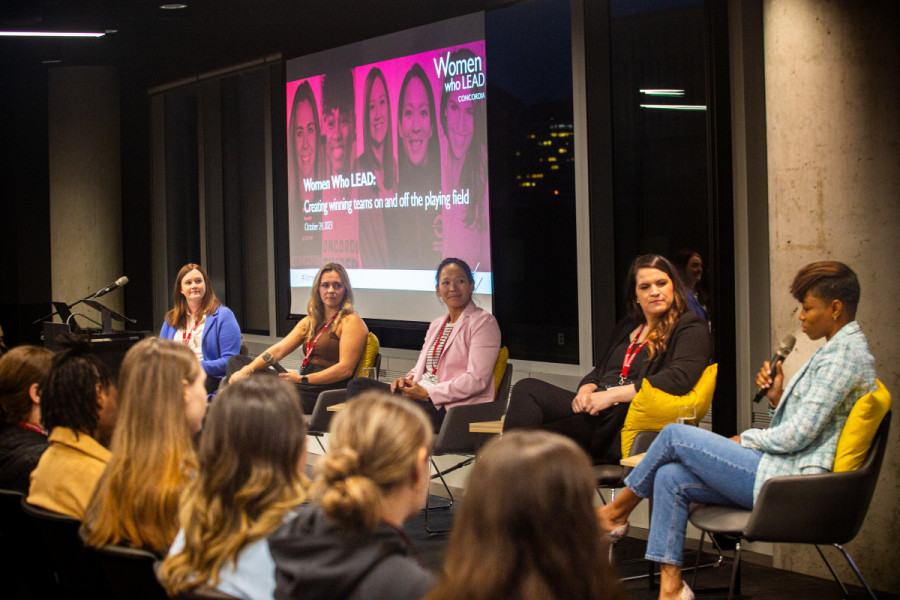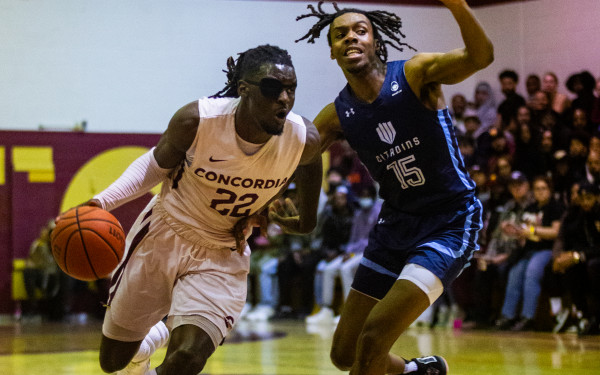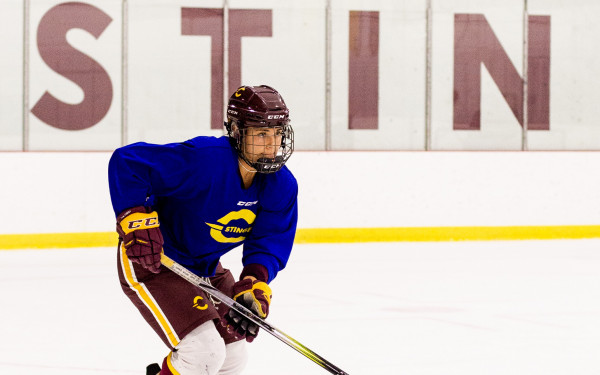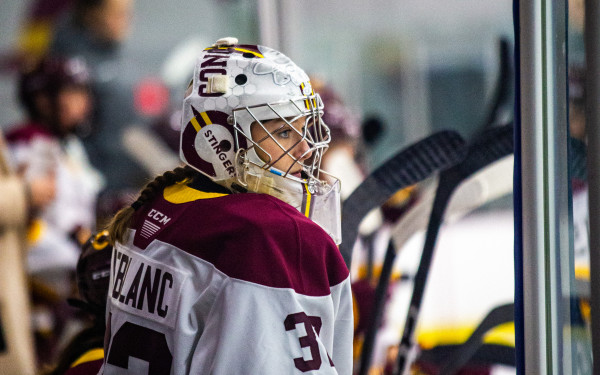Meet the Concordia women providing representation for young girls in sports
Concordia’s Women Who LEAD panel discussed the challenges that women face in sports
Concordia’s Women Who LEAD initiative held a conference at the university on Oct. 24, which discussed the struggles of applying to be a coach, managing expectations and why representation matters.
The panel consisted of Stingers women’s hockey head coach Julie Chu, Stingers women’s basketball head coach Tenicha Gittens, organizational psychologist and former member of Canada’s women’s national water polo team Katrina Monton, and women’s hockey captain Emmy Fecteau. Jessica Rusnak, sports columnist at CBC Montreal, moderated the event.
Rusnak first highlighted that women are starting to be seen more in coaching positions, especially at Concordia when three out of four women’s teams have female head coaches. However, she reminded that the majority of coaching positions tend to be held by men.
Chu believes there are not many women in coaching roles because they are less likely to apply for positions they are not entirely qualified for, while men apply regardless.
Gittens agreed with Chu that women feel the need to check every box and doubt themselves if they are missing one of the criteria. She shared that she had that mentality when applying to be the head coach of the women’s basketball team.
Female coaches can be very important for players. Fecteau told the audience how fortunate she is to be coached by women, and that it shows that hockey is not just for men. However, there have been occasions where referees have assumed male staff are head coaches.
“I used to have an assistant coach that was a male, and he was awesome,” Chu said. “But when [...] the referee didn’t know any of us, they would automatically go to him, assuming he’s the head coach.”
This bias women experience is tied into the history of sport, Monton said. She explained how men created sports for men, but added that women are slowly starting to break those barriers down.
“If you look back to the first Olympic Games, it was a battle to the death between two men to see who goes to war,” Monton said.
Women have to exceed expectations, in addition to dealing with the bias in sports. Gittens discussed that people always expect you to win games and championships as a coach, so players and coaches need to set their own expectations.
“Something I tell our players is, ‘You can never get too high because life will humble you very quickly, and you can never get too low because there is still life,’” Gittens said. “I think if you define what success looks like for yourself, it’s easier to manage those highs and lows.”
Coaches need to be able to manage these fluctuations to properly support their team. On top of that, Chu said coaches need to balance the amount of toughness and love they give their team. She works on interpersonal connections with her team because everyone needs to know each other to work well together.
“When you build relationships—and that’s the core of what we are, and who we are—then we can [have] tougher conversations when needed,” Chu said. “We can also know when we have to give a little extra love because we can see what that player is going through.”
Rusnak asked Monton about the parallels she sees between management in sports and management in the workplace.
“It teaches you how to work with others, manage others, manage your emotions, deal with high-pressure situations, deal with loss, deal with not getting your way,” Monton said.
For Gittens, being the best coach possible involves staying true to herself. Gittens also knows young Black girls are looking up to her as she is one of only four Black women coaching at the university level. Rusnak asked Gittens if it affects her leadership and if she takes on more of a role model position.
“I think if you’re authentically yourself, you’re genuine, then people will gravitate towards that. I never set out to be a role model, I just wanted to be myself and lead my program and these young women I’m blessed to coach every single day,” Gittens said, referring to players from the Stingers women’s basketball team who sat directly in front of Gittens during the panel.
Monton emphasized the importance of representation because young girls can dream of becoming professional athletes or coaches when they see more women in these positions.
Gittens shared how representation helped her believe she could be a coach.
“I gravitated towards the people that look like me because it made me believe that I could actually get there,” said Gittens. “I was lucky enough to be coached by Felicia Legette-Jack at Hofstra University, who is now the head coach at Syracuse. I was coached by a Black woman and I knew that I could do it because she’d done it.”
This article originally appeared in Volume 44, Issue 5, published October 31, 2023.







